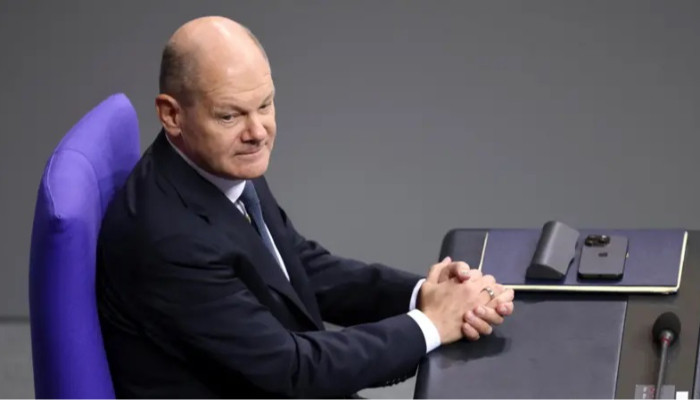German Chancellor Olaf Scholz loses confidence vote
 851 Monday, 16 December, 2024, 21:07 German Chancellor Olaf Scholz has lost a vote of confidence in parliament, paving the way for early elections on 23 February. Scholz called Monday's vote and had expected to lose it, but calculated that triggering an early election was his best chance of reviving his party's political fortunes. It comes around two months after the collapse of Scholz's three-party coalition government, which left the embattled chancellor leading a minority administration. Ahead of Monday's vote, Scholz said it would now be up to voters to "determine the political course of our country", teeing up what is likely to be a fiercely fought election campaign. Since his argumentative three-party governing coalition collapsed in November, he had been reliant on support from the opposition conservatives to pass any new laws, effectively rendering his administration a lame-duck government. Given Germany's stalled economy and the global crises facing the West, staggering on until the scheduled election date of September 2025 risked being seen as irresponsible by the electorate. Scholz's Social Democratic Party (SDP) is trailing heavily in opinion polls, while the conservative Christian Democratic Union (CDU) under Friedrich Merz appears to be on course for a return to government. Opening the debate, Scholz said the snap election was an opportunity to set a new course for the country and called for "massive" investment, particularly in defence, while Merz said more debt would be a burden for younger generations and promised tax cuts. The process was designed specifically by the post-war founders of modern Germany to avoid the political instability of the Weimar era. This vote of confidence is not a political crisis in itself: it is a standard constitutional mechanism that has been used by modern German chancellors five times to overcome political stalemate - and one Gerhard Schröder deployed on two occasions. On the surface, the collapse of the coalition was sparked by a row over money. Scholz's centre-left SDP and his Green partners wanted to ease Germany's strict debt rules to finance support for Ukraine and key infrastructure projects. That was blocked by Scholz's own finance minister, Christian Lindner, who is the leader of the business-friendly liberal Free Democratic Party (FDP), which prioritised driving down the debt. Lindner was sacked and the coalition collapsed. After years of unedifying bickering, you could almost hear the sigh of relief in Berlin's corridors of power - but the underlying cause is more difficult to resolve and more worrying. Germany's party political system has become more fragmented, with more parties than ever in parliament. The new upstart political forces are also more radical. In 2017, the far-right Alternative for Germany (AfD) entered the Bundestag for the first time, winning 12.6%. In 2021 it slipped to 10.4% but is now polling at almost 20%. |

U.S. withdrawing troops from Qasrak base in Syria
6812:12
Zelenskyy says Putin already started World War Three and urges action (video)
11111:31
Sheinbaum: The situation in most of Mexico remains normal
17910:30
Tehran minister likely to meet Witkoff on Thursday, says ‘good chance’ of diplomatic solution
399Yesterday, 21:37
The Rada announced the dates of the presidential and parliamentary elections in Ukraine
73021.02.2026, 10:23
US weighs on assassination attempt on Iran's supreme leader, his son — news outlet
69121.02.2026, 10:22
Zelenskyy: Ukraine is ready for compromises, but not at the cost of independence and sovereignty
76020.02.2026, 17:55
Araghchi: There is no military solution to Iran's nuclear program (video)
68220.02.2026, 16:57
